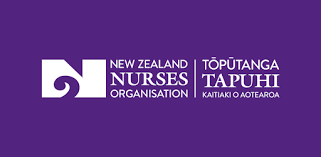The New Zealand Nurses Organisation (NZNO) has supported staff working at the Hastings Hospital Emergency Department to issue a Provisional Improvement Notice (PIN) to Hawke’s Bay District Health Board (HBDHB) for failing in its primary duty of care under the Health and Safety at Work Act 2015.
PINs legally require an employer or service provider to address a health and safety issue before a certain time.
NZNO organiser Sue Wolland says issuing the PIN became necessary because repeated attempts to escalate concerns about dangerous working conditions that threaten patient safety have been ignored or minimised.
"Staff are working under incredible pressure which is severely impacting their physical and mental health. The department is well beyond capacity every day which means staff are unable to respond to people needing emergency care in the time required to best ensure their wellbeing."
Ms Wolland said issues included: patients being ‘housed’ in inappropriate or hazardous places such as corridors; dangerous delays in triage and assessment; seriously unsafe and inadequate staffing levels; nurses too overworked to take meal and other breaks; patients missing out on essential care; increased risk of error; and staff feeling unsafe and anxious while at work.
"ED staff, including those in leadership, have repeatedly raised these concerns with the DHB and minor solutions have been proposed that never seem to eventuate. Our members have made these approaches in good faith, but sustained lack of progress has been the tipping point for issuing this PIN.
"What we have here is a serious or sentinel event just waiting to happen, resulting in avoidable patient death and the potential end to nursing careers.
"These concerns need to be urgently addressed, including contingency plans to cover staff sickness and to ensure staffing meets levels required for safe and acceptable standards of patient care."
She said the PIN was issued on Monday 21 September and that the DHB was required to comply by 5 October. PINs can only be issued by trained health and safety representatives when other avenues to address a serious area of concern have been exhausted.

